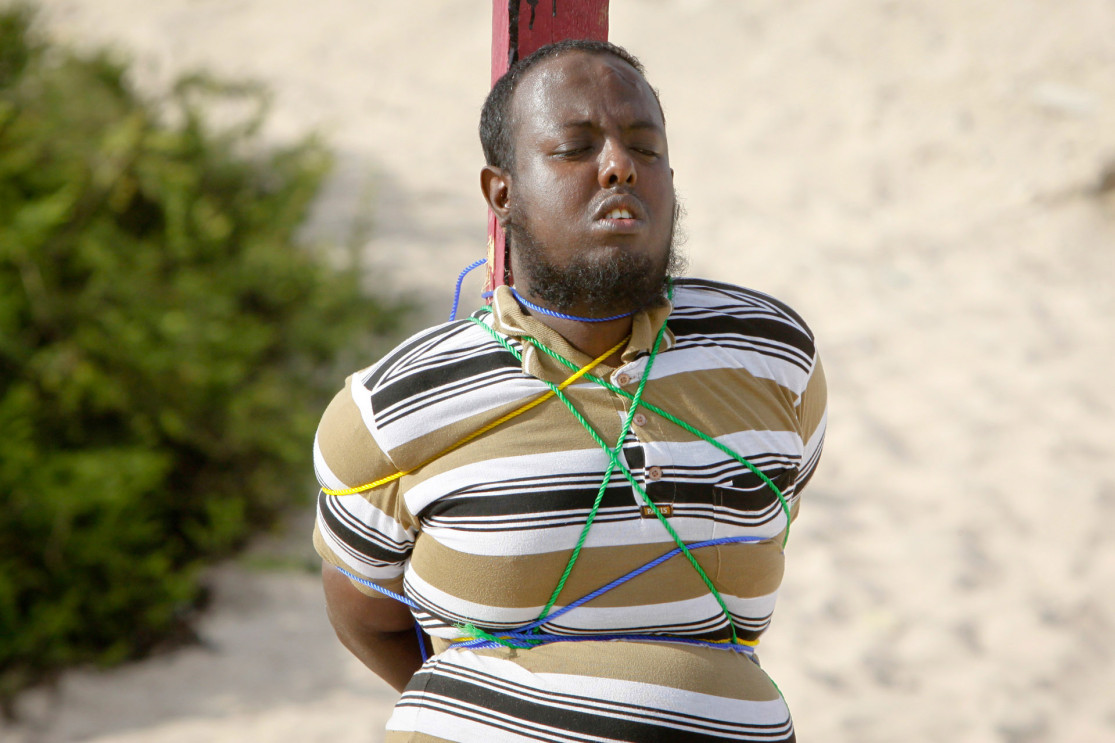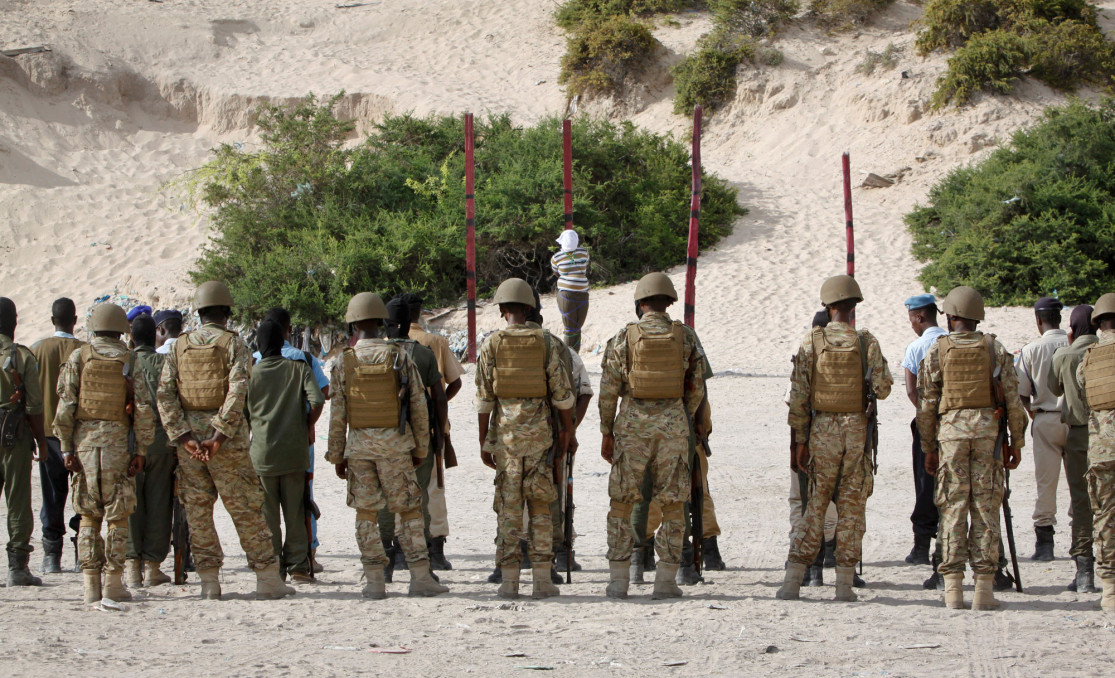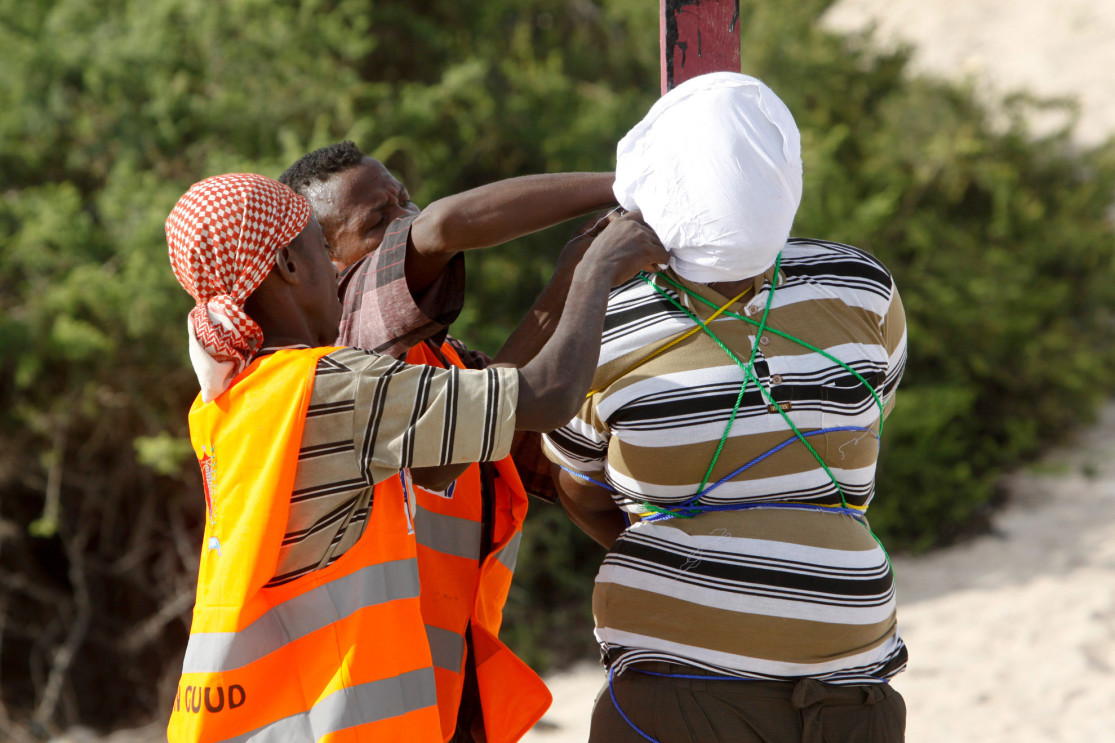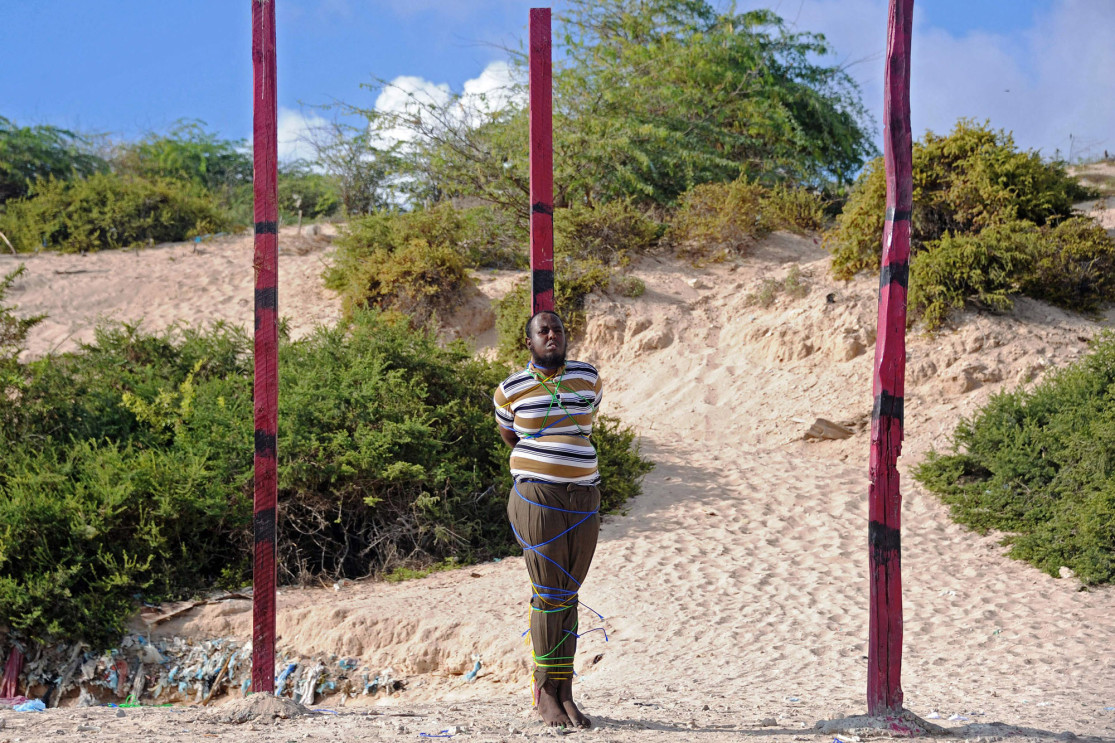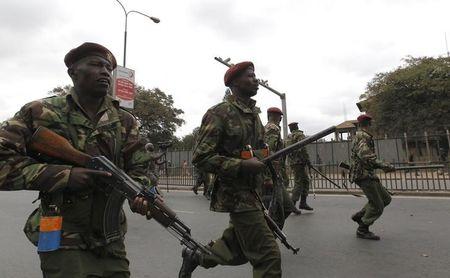
NAIROBI (Reuters) – Kenyan police have arrested a suspected key member of an Islamist militant group that was plotting attacks similar to one in 2013 on the Westgate shopping mall that killed at least 67 people, authorities said on Tuesday.
Militant attacks mostly by al Shabaab militants from neighbouring Somalia have increased in recent years in Kenya, which has a large Muslim population concentrated mostly along its Indian Ocean coast.
President Uhuru Kenyatta sent troops into Somalia in 2011 to join African Union military operations against al Shabaab that have driven it out of its major territorial strongholds but not ended its ability to carry out selective, deadly attacks.
Al Shabaab has vowed to fight Kenya until it withdraws its troops and it claimed responsibility for the assault on the Westgate Mall in the capital Nairobi as well as on a university in eastern Kenya where at least 148 people were killed.
In a statement, Kenyan police said Muhammed Abdi Ali was arrested on Friday as a suspected member of an east African militant group with links to Islamic State, which has seized large areas of Iraq and Syria and inspired offshoot groups elsewhere in the Middle East and Africa.
Ali worked as a medical intern at a hospital in eastern Kenya before his arrest and also studied at a university in neighbouring Uganda, the police statement said.
“Ali has been engaged in the active radicalisation, recruitment of university students and other Kenyan youth into terrorism networks,” it said.
His militant group was also planning “large-scale attacks akin to” the Westgate Mall, the statement said, and Ali’s network included medical experts who were plotting a biological attack in Kenya using anthrax.
The police statement said two suspected accomplices of Ali – Nuseiba Muhammed Haji, who is also his wife, and Fatuma Muhammed Hanshi – had been arrested in neighbouring Uganda.
Police did not say whether Ali’s group had links to al Shabaab. The Somali jihadist group aims to topple the Western-backed government in Mogadishu and impose its own strict version of Islamic law on the Horn of Africa country.
The African Union peace force known as AMISOM has managed to push al Shabaab out of Mogadishu and large parts of Somalia although analysts say it remains a resilient force.

